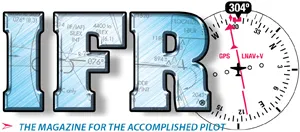Uncommon is a magazine editor who doesn’t occasionally struggle to come up with a topic for the monthly editorial. For me, it’s become one of the most difficult parts of the job. So, there I was, sitting at my desk trying to put this issue to bed, but once again lacking an idea for this page.
Contributing Editor Fred Simonds approached me months ago and asked if I’d be interested in a feel-good article covering some of the many saves attributed to an individual controller or a group of controllers within ATC. The norm in aviation journalism is to identify a failure of some type, usually human, and analyze it to find out what might have gone wrong and what sequence of events led up to that point. The idea, of course, is to learn from the mistakes of others—at least that’s what we tell ourselves to justify this ghoulish reporting.
I enthusiastically approved Fred’s proposal and the result of his research is on page 16 in this issue. I happened to have that article open on my computer as I was seeking a topic for my Remarks. My mind wandered to questioning why so many pilots are reluctant to involve ATC when they need the assistance. I’m not aware of any studies, but I do have two educated guesses.
My first guess probably applies more to novice VFR-only pilots who just don’t have enough experience with ATC to be comfortable making that call. If this is the case, I fault their primary instructor, and maybe even the instructor who did their most recent flight review. Because of this conclusion, I’ve told myself that any refresher training I provide will now include meaningful exposure to ATC and a discussion of how they can help. If we have the time and opportunity, I’ll even try to work in a visit.
My next guess involves the common misconception that a pilot will get busted if their flight gets in too much trouble. Because of this fear they don’t want to alert ATC that they are, indeed, in trouble. Yes, some pilots will get busted after enlisting assistance from ATC, but it’s uncommon. More likely the controller(s) simply wanted to help the pilot get out of trouble so the flight completed safely. If that trouble started with some truly egregious behavior by the pilot, sure, there might be some paperwork filed with a hope of preventing that same problem in the future.
Police have an expression: “I’d rather be judged by 12 than carried by six.” The implication should be obvious, that it’s better to survive a situation and face judgment than to let that situation lead to a fatal outcome. One could apply the same thinking to aviation. If I’m in over my head, I’d much rather fess up and get help from ATC that hopefully would lead to a safe outcome and maybe some paperwork or even a violation, than to continue down the dangerous path possibly to a fatal accident.
Once I make that call, I’ll get the help I need. After that, one of three things will happen. First, and most likely, is nothing. Next is that I might be asked for some documentation, some explanation justifying the requested assistance. Last, is I might pick up a violation.
Wouldn’t any of those three potential outcomes be preferable to crashing the airplane, likely with severe or even fatal injuries? If you need help, ask for it.





